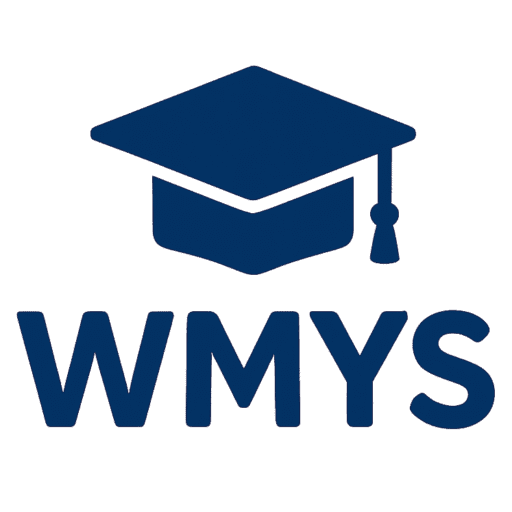Graduate Research Assistantships at Mississippi State University 2026 – Fully Funded Opportunities in GIS and Health Geography
Graduate research assistantships in the US provides financial support as well as allow students to gain hands-on experience in cutting-edge research. For the academic year 2026, the Geosystems Research Institute (GRI) at Mississippi State University (MSU) has announced fully funded graduate research assistantships for both Ph.D. and M.S. students specializing in Geographic Information Systems (GIS), Health Geography, and related fields.
These are designed for students related to geospatial technologies and public health research. With initial dates in Spring 2026 and Fall 2026, this program presents can be consider a golden opportunity for highly motivated students across the globe.
Why GIS and Health Geography Matter Today
It’s importance to understand the importance of GIS and health geography in today’s interconnected world.
Public Health Challenges: Specially in global pandemics, understanding how diseases spread across communities. GIS allows researchers to map, model, and predict the movement of diseases, helping governments and organizations respond effectively.
Environmental Health: Climate change, pollution, and environmental degradation have significant impacts on human health. By combining GIS with environmental data, researchers can uncover patterns of exposure and develop targeted interventions.
Healthcare Access and Equity: Not everyone has equal access to hospitals, clinics, or vaccines. GIS-based spatial analysis helps identify areas with limited healthcare infrastructure and guides policymakers in designing equitable solutions.
Remote Sensing Applications: With satellite data, researchers can monitor air quality, temperature changes, water contamination, and agricultural patterns, all of which directly influence public health outcomes.
Overview of the Graduate Research Assistantship Opportunity
Mississippi State University’s Geosystems Research Institute (GRI) is offering multiple fully funded assistantships starting in Spring 2026 or Fall 2026. These opportunities are available at both Ph.D. and M.S. levels, with one fully funded Ph.D. assistantship and multiple M.S. assistantships open for application.
Key Benefits of the Assistantships
Full Tuition Coverage – All selected students will have their tuition fully funded.
Monthly Stipend – Students will receive a competitive stipend to cover living expenses.
Access to Facilities – GRI provides state-of-the-art laboratories, computing resources, and access to real-world datasets.
Conference Travel Support – Students may receive funding to present their research at national and international conferences.
Publication Opportunities – Assistantship holders will be encouraged to publish their work in leading journals, gaining visibility in the academic community.
Areas of Research Focus
Some of the core research areas include:
Disease Mapping and Modeling: Using GIS to track the spread of infectious diseases and predict outbreak patterns.
Spatial Epidemiology: Studying how environmental and social factors influence the distribution of health outcomes across regions.
Healthcare Access Analysis: Identifying disparities in healthcare availability and outcomes using spatial tools.
Remote Sensing for Health: Integrating satellite data with health datasets to study the impact of climate, land use, and pollution on public health.
Public Health Planning Tools: Developing GIS-based applications that support decision-making in public health interventions.
Who Should Apply?
The ideal candidates will have:
A Bachelor’s or Master’s degree in:
Geography
Geospatial Science / GIS
Remote Sensing
Environmental Science
Climatology
Public Health
Demonstrated interest in:
Spatial data analysis
GIS applications in health or environmental research
Computational methods (R, Python, etc.)
Interdisciplinary teamwork
Research communication and outreach
Strong technical skills in software and programming:
ArcGIS, QGIS
R and Python
Remote sensing tools
Applicants do not necessarily need to have all these skills in place but should demonstrate a strong willingness to learn and engage in interdisciplinary problem-solving.
Application Deadlines
Spring 2026 Intake:
International Applicants: October 1, 2025
Domestic Applicants: December 1, 2025
Fall 2026 Intake:
All Applicants: January 15, 2026
Application Process
Applicants have to apply through the Mississippi State University Graduate School portal. Here are the important steps to apply:
Select Your Program: Choose the appropriate department and degree program (Ph.D. or M.S.) related to GIS and Health Geography.
Prepare Your Documents:
Transcripts
Letters of Recommendation
Personal Statement (highlighting interest in GIS, health geography, and interdisciplinary research)
Curriculum Vitae (CV)
GRE scores (if required by the program)
English language test scores (for international applicants)
Mention GRI Assistantship: Clearly state your interest in the Geosystems Research Institute assistantship in your application.
Submit (Before the Deadline): Ensure your complete application is submitted before the respective deadline.
Why Choose Mississippi State University?
Mississippi State University is a leading research institution with strong interdisciplinary collaborations. Some highlights are bwlow:
National Recognition: MSU is widely recognized for its research in GIS, remote sensing, and public health.
GRI Excellence: The Geosystems Research Institute is home to cutting-edge laboratories and partnerships with federal agencies.
Collaborative Environment: Students work closely with faculty experts and research scientists.
Real-World Impact: MSU projects often feed into national and international policymaking in areas such as climate resilience, public health, and agriculture.
Student Support: From academic mentoring to career development resources, MSU ensures its graduate students are well-supported.
Career Pathways After Graduation
Graduates of this assistantship program can pursue diverse career paths, including:
Academia: Teaching and conducting research in universities.
Government Agencies: Working with organizations like the CDC, NASA, or state health departments.
Nonprofits & NGOs: Contributing to international projects with WHO, UN, and similar organizations.
Private Sector: Careers in data science, consulting, geospatial analytics, and health informatics.
With GIS and public health expertise in high demand, graduates are well-positioned for global opportunities.
FAQs
1. Can international students apply?
Yes, international students are strongly encouraged to apply.
2. Is the GRE mandatory?
It may be optional depending on the program. Always check departmental requirements.
3. What financial benefits are included?
Full tuition, monthly stipend, and support for conference travel.
4. Can students publish research during the program?
Yes, students are encouraged to publish in journals and present at conferences.
5. What kind of projects will I work on?
Projects will focus on GIS, health geography, epidemiology, and environmental health research.
Conclusion
The Graduate Research Assistantships at Mississippi State University 2026 represent a unique opportunity for both domestic and international students to engage in fully funded, interdisciplinary research. With benefits such as full tuition, stipends, cutting-edge research facilities, and career development opportunities, this program is ideal for students who aspire to make a global impact through GIS and health geography.
By applying early and preparing a strong application, you can join the Geosystems Research Institute at MSU and contribute to research that shapes the future of public health and geospatial science.
👉 Interested applicants should apply via the Mississippi State University Graduate School portal and mention their interest in the GRI assistantship.
Official Link:
Mississippi State University Graduate School portal




